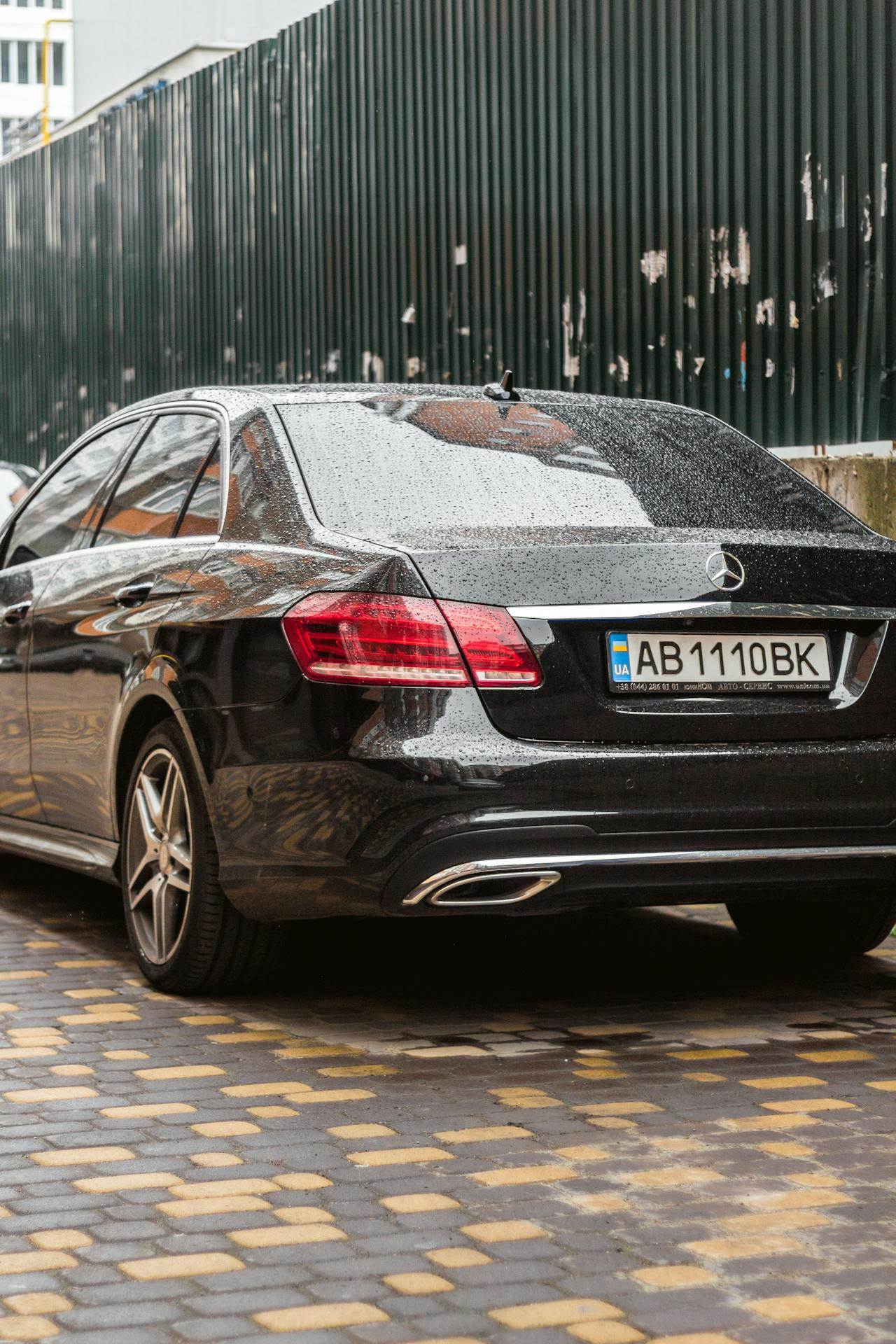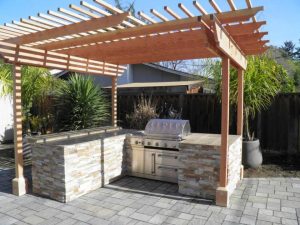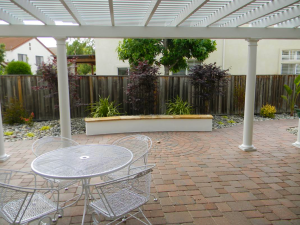Individuals who need to reduce runoff, increase drainage, and adhere to municipal regulations will opt for a permeable paver driveway. You have a durable, reliable drive that allows rain to soak in, preventing both puddles and floods. Permeable pavers are great for homes in wet spots or areas with lots of rain. They accommodate a wide variety of styles and needs, so you can discover options that complement your aesthetic. Read on to find out who benefits most and what to consider.
Key Takeaways
- There are several reasons why you should opt for a permeable paver driveway — after all, it allows rainwater to absorb into the earth instead of running off.
- Permeable driveways filter pollutants from rainwater to improve water quality and protect local ecosystems.
- When you use materials that absorb less heat, you’re helping create cooler outdoor spaces and minimizing the urban heat island effect.
- For this reason, a permeable driveway is an investment worth making!
- Permeable driveways fit a variety of needs, including environmentally conscious homeowners, properties with drainage issues, regions with water restrictions, and commercial properties seeking sustainable options.
- For optimal performance, factor in soil type, site slope, and professional installation, and of course, maintain regularly to maximize performance and lifespan.
What Is A Permeable Driveway?
In a nutshell, a permeable driveway is a surface that allows water to percolate instead of washing it away to storm drains or the street. It does this by utilizing porous materials or pavers with gaps, allowing rain to simply fall through to the earth beneath. This type of driveway is designed to delay or even eliminate runoff, which prevents flooding and erosion. You’ve frequently noticed these driveways where folks desire to contribute their share for the environment, or where local codes require improved drainage.
Material options if you want a permeable driveway. The most common options include:
- Brick pavers with gaps between each brick
- Concrete pavers with built-in spaces
- Plastic grid pavers, sometimes filled with gravel or grass
- Crushed stone or gravel
- Grass or turf block systems
Many opt for brick or concrete pavers with small joints between each. Rain falls on it, then drains into those cracks and down into a layer of gravel beneath. The base is typically composed of open aggregate — usually 15-20 cm of gravel, which provides room to accumulate and percolate. Cracks or joints are caulked with a small porous rock, such as 6 mm aggregate. This arrangement allows water to continue its journey, rather than puddling on top.
Others employ plastic grids, which contain gravel, pebbles, or even grass. These are nice if you want something that ‘disappears’ into a yard or garden. Grass driveways can be nice and green and natural-looking, but they require more maintenance and may not be suitable for heavy vehicles or frequent use. For a simple, inexpensive option, loose gravel is typical, but it can shift over time and should be raked back into place.
Permeable driveways are a huge deal for stormwater. By allowing water to permeate, they assist in replenishing groundwater and reducing flood risks. They prevent runoff from sweeping oil, dirt, and trash into rivers. That makes them an intelligent and responsible decision for anyone with an environmental conscience or who simply needs to comply with local stormwater regulations.
Unlike a standard driveway constructed using solid concrete or asphalt, a permeable driveway functions differently. Here’s the catch with a conventional driveway: it’s a sealed surface—water bounces off and runs straight to the curb. With a permeable driveway, water seeps through the surface and into the ground. This assists in reducing the burden on municipal drains and reduces your likelihood of puddles or ice in colder seasons.
Depending on the type and maintenance, a properly constructed permeable driveway can last 25- 60 years or more.
Why Choose Permeable Driveways?
They provide genuine value to your home and the surrounding environment, perfect for homeowners and professionals seeking intelligent, enduring impact.
1. Stormwater Management
If water from heavy rain has nowhere to go, it can flood streets or yards. Permeable driveways allow rain to percolate through the surface, thereby reducing accumulation or swift runoff. This keeps your driveway clear and dry and even reduces the risk of black ice in colder climates.
They replicate the natural water cycle, allowing as much as 100% of small storm runoff to soak into the ground. The water flows to layers below, which results in reduced strain on municipal drains and less inundation. When driveways are constructed to drain well, you experience reduced erosion and water damage issues.
2. Water Quality
As water drains through permeable driveways, layers of stone or sand below catch pollutants. This low-tech system can eliminate up to 90% of total suspended solids before water enters groundwater or streams. Less oil, dirt, and chemicals wash away, so nearby rivers and lakes stay cleaner.
Cleaner runoff equates to healthier local fish and plants. Your driveway doesn’t just make your house look great; it protects local wildlife habitats. With this natural filtering, you help keep groundwater supplies safer for wells and other uses.
These advantages are particularly useful if you reside close to natural bodies of water or in areas where pristine water is an issue.
3. Heat Reduction
Traditional asphalt absorbs sunlight and can get sweltering, turning adjacent spaces into ovens. Permeable driveways remain cooler since water passes through, and certain surfaces reflect additional light. Utilizing lighter colors or materials, such as natural stone, can assist even further.
Lower surface temperatures make a real difference in dense neighborhoods, where heat can accumulate quickly. Cooler driveways = less heat radiating up into your yard or home, and local temperatures take a dip.
Evaporation and runoff from these surfaces cool the site, so your driveway contributes to the entire neighborhood.
4. Long-Term Value
Permeable driveways endure. They can withstand everything from heavy cars and delivery vans to bikes without degrading prematurely. With materials such as interlocking pavers and porous concrete, permeable driveways are hard-wearing and require no sealing or extensive repairs.
You will save money in the long run as well because you won’t need to resurface or seal your driveway as often. A lot of cities will provide tax breaks or rebates for installing permeable surfaces, which can save you thousands upfront.
Plus, a few are pretty cost-effective, so you have both durability and savings.
5. Aesthetic Appeal
They can be in a variety of colors, shapes, and sizes of your choice. You can choose natural stone, brick, or concrete to fit your home or yard. Patterns and textures contribute to the appearance, so your driveway can be unique or unobtrusive.
They enhance curb appeal and increase property value, particularly for design- and sustainability-conscious buyers.
You can integrate a permeable driveway into virtually any landscape, from tight city lots to more expansive rural settings.
They work for new builds or retrofits, so you don’t have to reinvent the wheel.

Who Needs A Permeable Driveway?
Permeable driveways are ideal for a variety of properties and homeowners who require improved water management, confront municipal water regulations, or wish to minimize their ecological footprint. If you appreciate long-term savings, lower risk, or meeting stormwater laws, it’s worth closer consideration. Here are the top contenders who benefit the most.
- Homeowners with heavy rain, flooding, or high water table problems
- People prioritize eco-friendly buildings or sustainable landscaping
- Properties facing waterlogging, drainage issues, or standing water
- Homeowners in water-restricted or conservation law areas
- Enterprises that have to manage stormwater or enhance their image
- Who wants to reduce stormwater utility fees or property maintenance
Eco-Conscious Homeowners
If you’re all about going green on your home projects, a permeable driveway fits right in. These surfaces allow rainwater to infiltrate, helping to filter out pollutants and maintain healthier nearby waterways. By opting for this type of paving, you’re doing your part to minimize runoff and ease the burden on municipal drains. A lot of homeowners are getting permeable driveways to help boost green building certification or to achieve environmentally conscious renovations. This option contributes to replenishing groundwater by allowing water to drain back into the soil, which is important in an urban or semi-urban environment where such a large amount of land is sealed with concrete. Permeable solutions allow you to strike a perfect balance between functionality, curb appeal, and environmental stewardship.
Properties With Drainage Issues
Symptoms that your soil doesn’t drain well, such as rain puddles, water collecting around your foundation, or wet spots that just won’t dry out, all indicate a demand for improved permeability. Permeable driveways exist to address these precise issues. Rainwater permeates the surface, assisting in relieving strain on your sewers and reducing flood potential. Addressing drainage issues isn’t just about convenience. It’s about maintaining your foundation strong and protected from water damage, mold, or expensive repairs down the road. Permeable surfaces will help keep your home high and dry, even in areas with heavy rainfall or high water tables. They tend to make driveways less slick during wet weather, which is a plus for safety.
Regions With Water Restrictions
In arid regions or under strict usage regulations, every drop matters. Such as permeable driveways, which, when you have them, can help you reduce wasted water by letting more water soak into the ground. This helps local water conservation efforts and may assist you with compliance with local government regulations. In certain areas, permeable pavers can lower your stormwater utility fees or garner you rebates for the act of compliance. Taking the ‘permeable drive’ is to join the crusade for sustainable water use.
Commercial Properties
Benefit | Description |
Stormwater control | Reduces runoff and risk of surface flooding |
Lower liability | Fewer slip-and-fall incidents from ice or standing water |
Reduced upkeep | Less debris and fewer drainage repairs |
Public image | Shows commitment to green business practices |
Improved landscape appeal | Looks natural and fits many design styles |
Companies experience improvements in security, profits, and reputation. Permeable driveways take a beating and make sites more welcoming. They help you comply with the code, bypass fines, and lead the way in sustainability.
Permeable Driveway Options
Permeable driveway options encompass a variety of materials and systems. They each function differently to allow water to filter through, minimizing runoff and maintaining a safe, clean property throughout the seasons. Choosing the best option for you involves considering your climate, desired maintenance, budget, and aesthetic goals. Here’s a quick side-by-side breakdown of the main types and their general characteristics.
Type | Main Material | Key Features | Typical Lifespan | Notable Benefit |
Interlocking Pavers | Concrete/Stone | Modular, customizable, strong | 30-60 years | High design flexibility |
Porous Concrete | Special Concrete | Full-slab, high permeability | 20-40 years | Good for heavy vehicles |
Pervious Asphalt | Open-graded Asphalt | Smooth, urban fit, easy snow removal | 15-25 years | Lower heat retention |
Gravel Grids | Plastic + Gravel | Very affordable, easy to install/repair | 20-40 years | Low upfront cost |
Interlocking Pavers
Interlocking pavers distinguish themselves by their durability and longevity. Each paver interlocks with the next, dissipating weight and absorbing the repeated impact of cars and trucks. That renders them a good choice if you require a driveway that holds up to serious wear without settling or fracturing.
Installation is easy, and so is repairing damage. If one paver cracks, you simply lift it out and replace it with a new one. You don’t have to resurface the entire driveway, which keeps costs down over time. Interlocking pavers are available in many shapes, colors, and sizes, so you can lay out everything from simple paths to intricate, style-matching patterns. This versatility to fulfill both contemporary and traditional aesthetics makes them a great match for many homes across the globe. Water percolates between pavers and into the gravel base below, reducing runoff and filtering up to 90% of solids and pollutants before they enter public drain systems. In the snowy climates, water oozes underneath instead of puddling, helping to avoid ice.
Porous Concrete
Porous concrete allows water to percolate through its surface and underneath, so it doesn’t puddle or run off your property. The mix contains fewer fines, allowing for numerous small holes to allow water to seep through.
This type also aids in reducing surface runoff as is in big rain. It’s a savvy choice if you’re looking to support your local streams and reduce stress on municipal sewers. Porous concrete, which can withstand heat, rain, or cold, can last for many years with the proper maintenance. It’s frequently less expensive than other options over time because you don’t require as much maintenance to keep it functioning well.
Pervious Asphalt
Pervious asphalt utilizes a mix with bigger voids, so the water seeps through the pavement instead of flowing off of it. It’s constructed without some of the fine sand that makes normal asphalt so compact.
This type of driveway provides stormwater mitigation benefits, particularly in high-traffic urban or suburban locations that have extensive paved surfaces. The smooth finish is easy on tires and safe for bikes or kids’ toys, so it’s a good match for many homes. Since it doesn’t retain heat like regular asphalt, it keeps driveways cooler on hot days, which benefits many regions.
Gravel Grids
Gravel grids are plastic cells filled with gravel. The grid secures the rocks so you don’t have ruts or mud, and water passes right through to the soil beneath.
Fast to install and simple to repair, these systems require less maintenance than concrete driveways. You can opt for pea gravel, crushed stone, or Blackstar for varying aesthetics. Grids keep the stones tidy, so you get a clean finish. Others even have grass or low plants growing through for a “green” appearance.
Key Installation Factors
As with any driveway, the successful installation of a permeable paver driveway calls for careful planning and attention to detail. If you’re on a residential or commercial site, they influence the result and durability. Below are the most critical points for a smooth installation process:
- Assess soil permeability before starting the project
- Prepare the site with the correct excavation and grading
- Select base and paver materials that suit your climate and usage
- Firm the base and lay clean, crushed stone (5–10cm thick)
- Overlap fabric seams 15 cm to ‘lock’ fabric in place and prevent movement
- Follow local codes and secure permits
- Hire licensed professionals with proven experience
- Schedule maintenance, such as joint cleaning and debris removal
Soil Type
Soil type plays a significant role in how well your permeable driveway drains water. Sandy soils are ideal, as they allow quick water infiltration, reducing runoff and puddling. Before installing any pavers, it’s a good idea to perform a soil test to determine your soil’s percolation rate.
Clay soils can be trying. Water can’t flow through clay as easily, so you may need to dig deeper or install additional drainage beneath your pavers. In such cases, a thicker base layer of crushed stone aids in preventing water from backing up. On the reverse end, if your soil is primarily sand or gravel, you’ll experience excellent drainage immediately, which equates to reduced chances of flooding or erosion surrounding your driveway.
Site Slope
Site slope informs you how water is going to flow once it strikes your driveway. If your ground is flat, water can soak in more evenly, but you still want a very slight slope—around 2%—to help water run away from your house or garage.
Steep slopes can get tricky. If your driveway slants too much, the water flows off before it can soak in, so you’ll have to rely on special borders or catch basins. Grading is crucial to keep water away from structures and to prevent washouts or puddles that can compromise your paver base.
Controlling the slope from the beginning maintains your driveway’s integrity and keeps the system operating as designed.
Professional Help
Hiring a pro comes with clear steps:
- Look for a licensed and insured contractor, which should be a given, but it means he meets local regulations.
- Check if they’ve worked with permeable pavers, especially for hard-core freeze-thaw climates.
- Request references or review previous projects to verify quality.
- Confirm they follow local codes and handle permits.
- Ensure they know how to select the appropriate materials for your location and climate.
Professional installers understand these traps—such as incorrect base depth or insufficient grading—that ultimately result in expensive repairs. They know how to lay the pavers so seams remain tight and don’t shift. In restrictive localities, such as Lee County, FL, they’ll ensure your project passes inspection and remains legal. Good pros can help you sort out costs—which can run $130 to $215 per square meter—and stay on budget.
Regulations And Maintenance
Know the local regulations before you schedule anything. Many jurisdictions have rigid stormwater, driveway size, and materials codes. If you forgo this step, you may be subject to fines or have to rework.
Maintenance is in the mix. Wash joints, brush away mud, and repair obstructions to ensure flow.
Stay ahead with yearly checks.

The Unspoken Realities
Opting for a permeable paver driveway is about more than just appearances. When you evaluate this alternative, you’ve got to consider upkeep, risk, initial expense, and how all these work in the real world around the world. The specifics don’t jump out all the time, but they count if you want a driveway that functions season after season.
Maintenance Commitment
Maintaining a permeable driveway requires consistent effort. Daily tidying is the secret. If leaves, dirt, or sand accumulate in the spaces, water won’t be able to pass through. This can cause puddles or even rot. You might have to broom or vacuum the surface every once in a while, particularly if your driveway is near trees or in windy locations.
There are even weeds and grass. If you allow plants to grow between your pavers, their roots can impede water flow and shift stones. Small things, such as hand-weeding or media-wedding, keep the top clean. If you do use gravel, raking once in a while will help distribute the stones and prevent dips.
In the long run, this regular work equates to your driveway lasting far longer. For instance, brick pavers typically last a quarter-century, and natural stone can stretch beyond 30 with proper maintenance. Staying on top of care saves you from larger expenses down the road.
Clogging Risks
Clogging is number one on the list of challenges for permeable driveways. Soil, leaves, and just plain sand can penetrate the gaps between pavers. This prevents water from seeping through, which defeats the primary purpose of these driveways. Generally, clogs originate from not cleaning frequently enough or having dirt wash in from adjacent gardens.
The right selection of materials can assist in this. Take, for example, concrete and plastic pavers, which typically do not clog as easily as certain brick varieties, unless bricks are laid with wide joints and gravel underneath. Checking your driveway every couple of months helps detect minor blockages before they exacerbate.
Drainage matters, too. A good sub-base, such as layers of gravel, lets water seep through even if the surface accumulates some buildup. This arrangement is good for gravel driveways, as well — timeless, wallet-friendly, and naturally good-draining.
Initial Investment
The upfront price of a permeable paver driveway is more than plain concrete or asphalt. You pay extra for the materials, for the craftsman, and it might even take a few days to complete. For instance, natural stone and specialty bricks are pricier, while gravel can be gentler on your pocket but requires additional maintenance.
Long term, the savings accumulate. You don’t have to fix things as much, and you don’t have as many drainage or flood problems. Homes with well-maintained permeable driveways tend to get a boost in value, as buyers appreciate the appearance and the stormwater advantages. For eco-conscious homeowners, the monetary potential increases over time, not just in savings but in reduced local water system footprint.
Conclusion
A permeable paver driveway is a great choice for anyone who wants less water pooling, less runoff, and less stress about flooding after a hard rain. If you live where storms pound or regulations require you to manage rainfall, this driveway style kicks in. You get that clean look and strong surface that holds up to everyday use. Gravel, brick, or open-grid, you decide what suits your requirements. Maintenance remains easy, and the rewards last for decades. To find out if a permeable driveway is the right fit for your home or project, consult with a local specialist or explore reputable online resources. Dig a little deeper and check out how this step makes your drive sweeter and your days simpler.
Frequently Asked Questions
1. What Makes A Driveway “Permeable”?
A permeable driveway allows water to permeate through its surface. It’s great for handling rainwater, keeping it out of the flood cycle, and minimizing runoff to local drains.
2. Who Should Consider Installing A Permeable Paver Driveway?
If you desire to control stormwater, avoid puddling, or reside in locations with high rainfall or stringent stormwater regulations, a permeable paver driveway is for you.
3. Are Permeable Driveways Environmentally Friendly?
Yes, of course, permeable driveways are good for the earth! They permit rainwater to seep into the soil, thereby minimizing soil erosion and safeguarding nearby water bodies.
4. Do Permeable Driveways Require Special Maintenance?
You must clean your permeable driveway often. By clearing debris and sweeping, you help maintain water flow and keep your driveway looking good.
5. Can Permeable Pavers Handle Heavy Vehicles?
Most permeable pavers are strong enough to accommodate automobiles, trucks, and even light commercial vehicles. Check the product specifications for weight limits.
6. What Are The Main Types Of Permeable Driveway Materials?
You can select permeable concrete, porous asphalt, permeable stone, or recycled pavers. Both provide various aesthetics and advantages.
7. Is A Permeable Driveway Cost-Effective?
Permeable driveways might be more expensive to install, but they save you on draining fees and maintenance bills over time.
Make The Sustainable Choice Today
Your driveway doesn’t have to just be a place to park — it can be a powerful part of your stormwater solution and a statement of your environmental values. If you’re facing water drainage issues or simply want to do your part for sustainability, a permeable paver driveway is a smart, forward-thinking investment. At DPG Pavers & Design, we’ve helped homeowners and businesses throughout the Bay Area create driveways that look incredible, reduce runoff, and comply with local stormwater regulations. Ready to explore eco-friendly paver options that offer durability, style, and function? Browse our Driveway Gallery for inspiration and discover what’s possible. Improve drainage and sustainability—ask us about eco-friendly options. Your smart driveway starts here.
Disclaimer: Driveway performance and lifespan depend on site-specific conditions, proper installation, and regular maintenance. Always consult a licensed professional to evaluate your location’s drainage and soil characteristics before installation.






